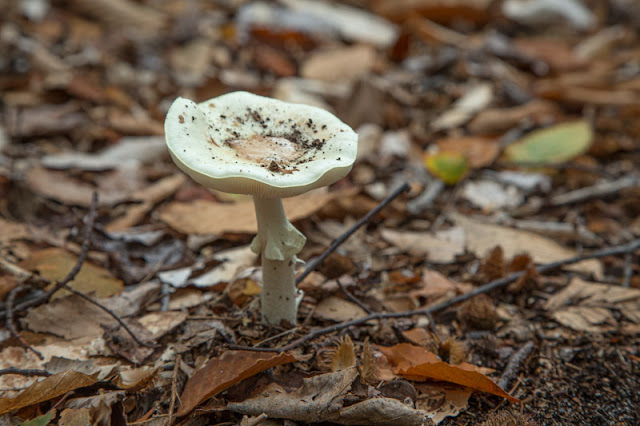Flowers, birds and butterflies are fairly common subjects for nature photographers. Kim has taken it a step further to seek, appreciate and photograph lichens and fungi, especially mushrooms. Why not? It’s a beautiful world if you know how to look. And mushrooms tend not to fly away as you are just about ready to take your shot.
The plan was for me to identify the plants – mainly mushrooms – in Kim’s photographs. Then I saw that there are 10,000 species of mushrooms in North America, so I’m including only the names of those Kim identified, plus any I might stumble upon. I invite you to come up with your own names, based entirely on what the photograph suggests.
Here we go:
 |
| Turkey Tail Mushrooms |
 |
| Shelf Fungus - aka Artist's Fungus |
 |
| Red-capped Russula -maybe |


 |
| Orange Cup Fungus |
 |
| Hericium Mushroom - aka Lion's Mane, Monkey Head, etc. |
 |
| Frog Skin Lichen - from British Columbia |
 |
| British Soldiers Lichen |
 |
| American Fly Agaric |
 |
| Ghost Pipe - a flowering plant that looks like a mushroom |
 |
| False Morel Mushroom - don't eat it! |
 |
| Morel Mushroom - yum! |
There is a lot more to say about fungi. The place to find it is the Netflix movie, "Fantastic Fungi."

























Beautiful photos.
ReplyDeleteFantastic, otherworldly. Bacterial spores can survive the harsh conditions of deep space for tens of thousands of years, perhaps much longer. What I find interesting is that spores can survive transits between planets in a solar system, so if one planet is harboring life that "infection" can spread throughout a planetary system. Thanks, Kim.
ReplyDelete